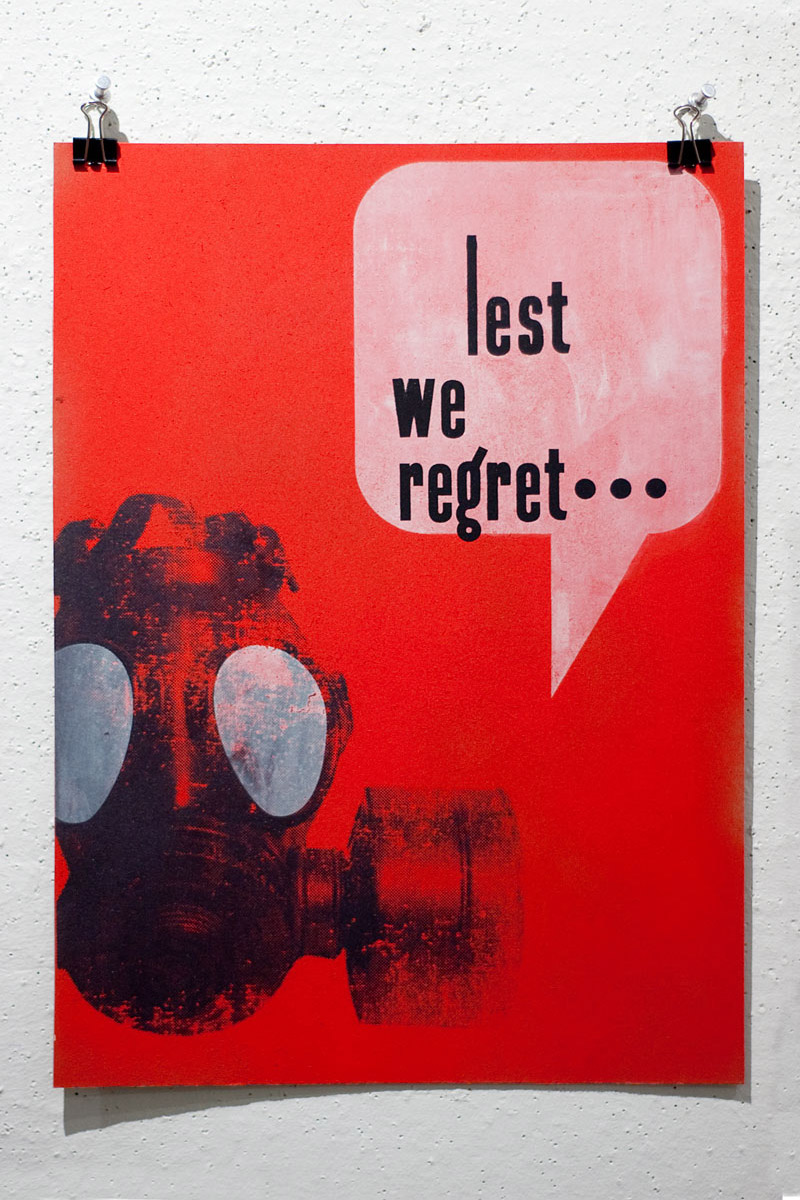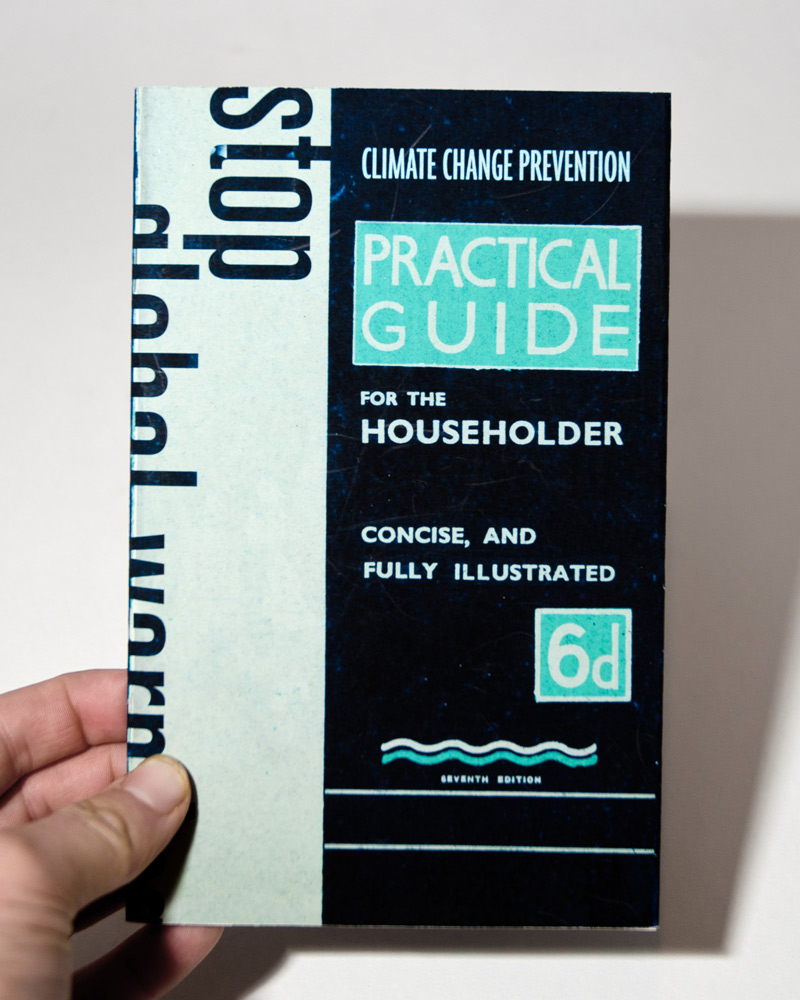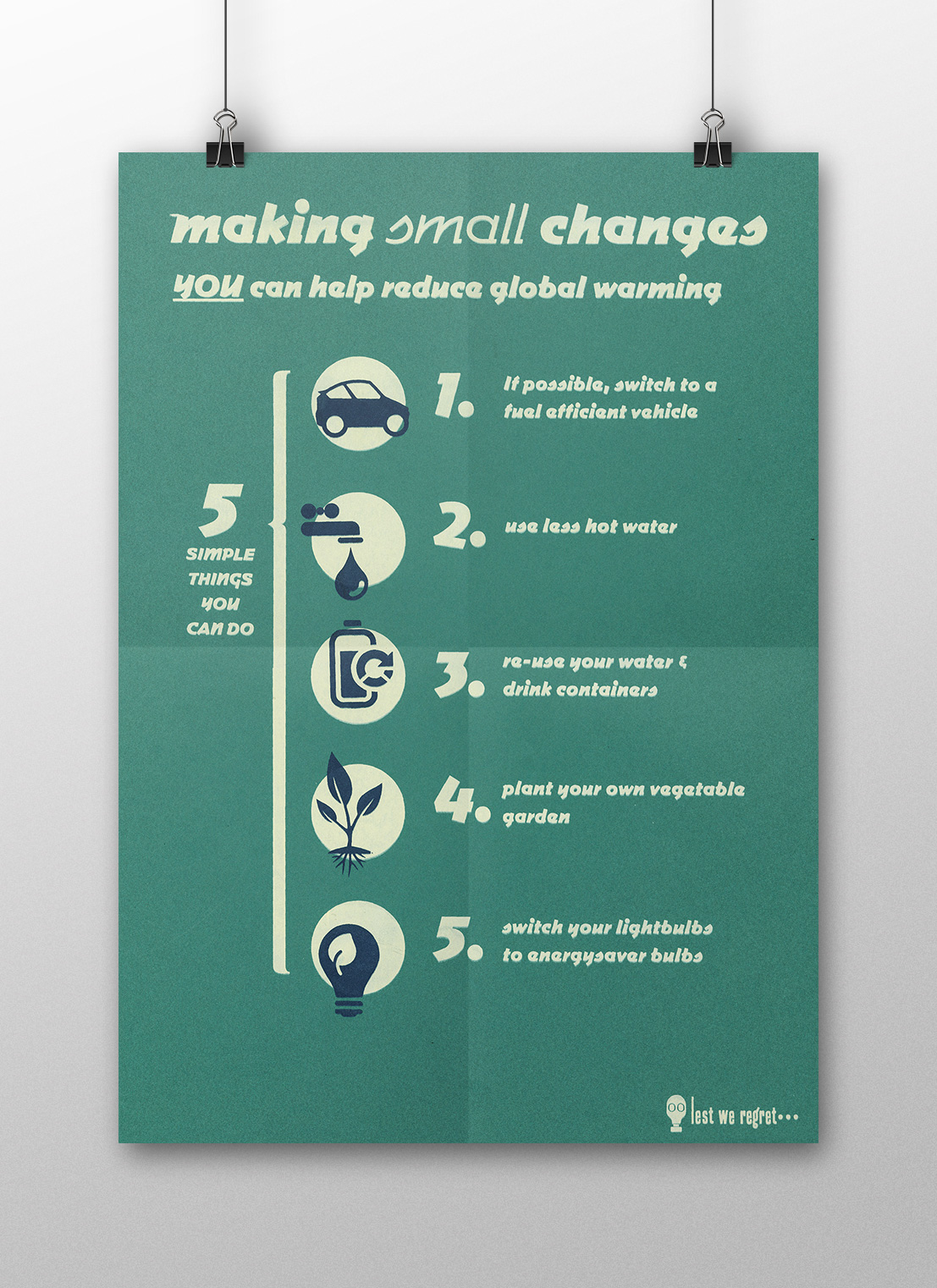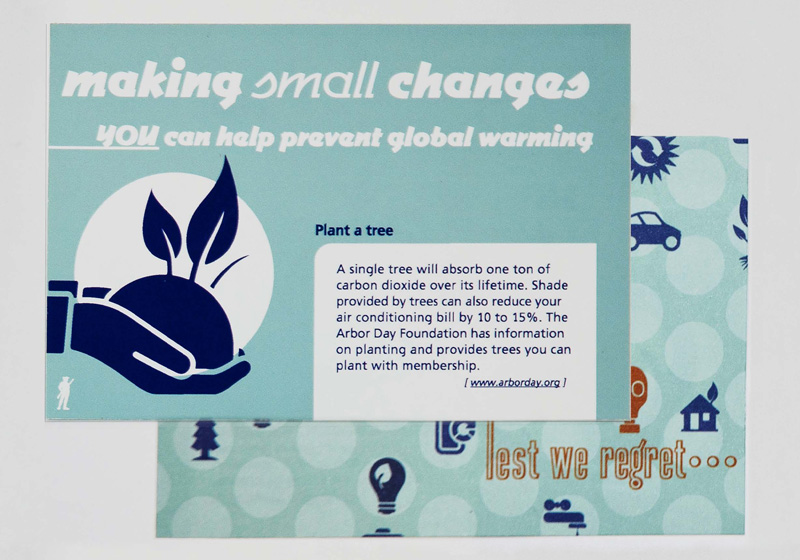Inspired by the somewhat comical “call to action,” WWII Propaganda posters of the 1950s, I decided to create a series that was both positive; empowering people to create positive change, while adding a subversive ominous tone which is also found in many of the WWII posters. I thought it would make a more compelling campaign if there were two contrasting voices interacting and adding depth and another layer of meaning. My campaign spanned across several forms of print mediums including subversive posters and informational posters, booklets and postcards.
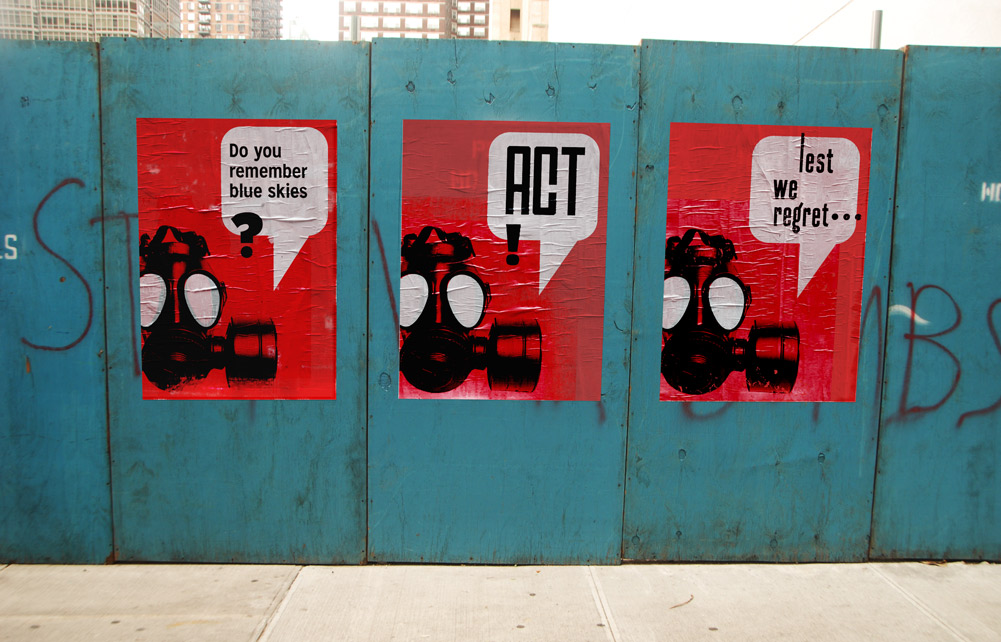
Campaign deliverables
Participatory design
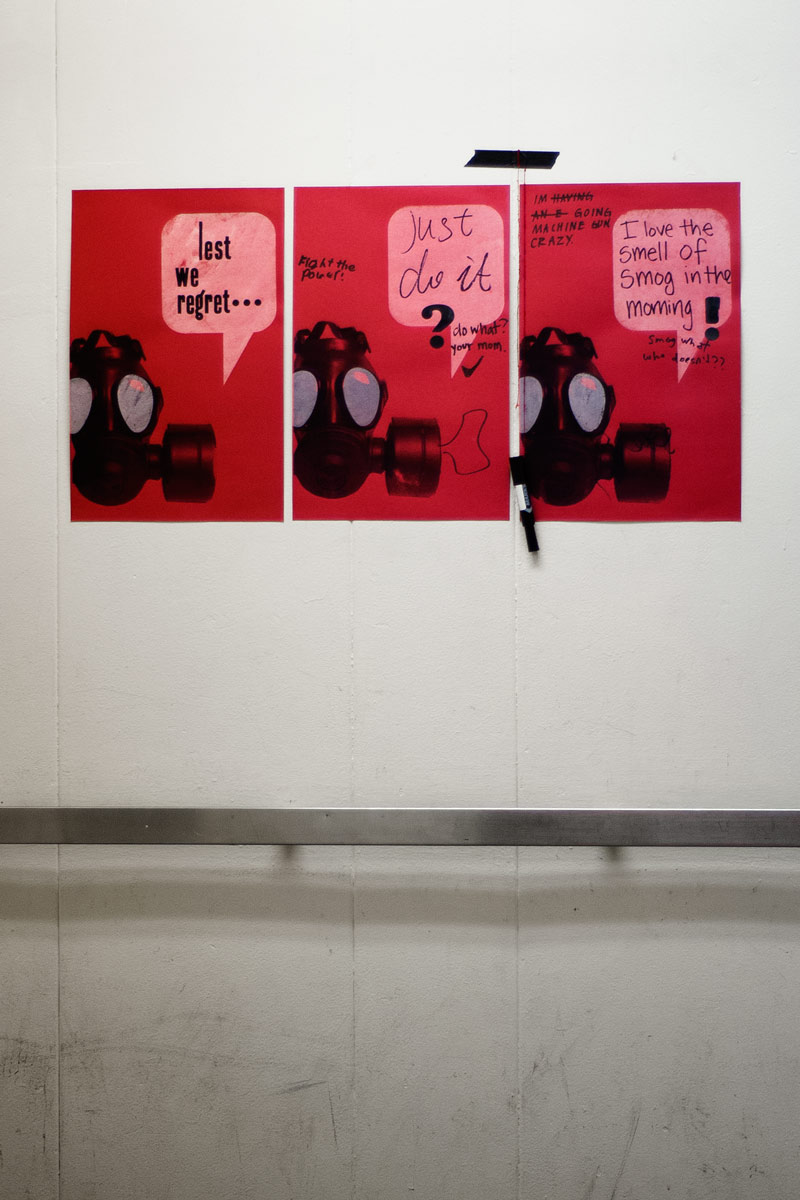
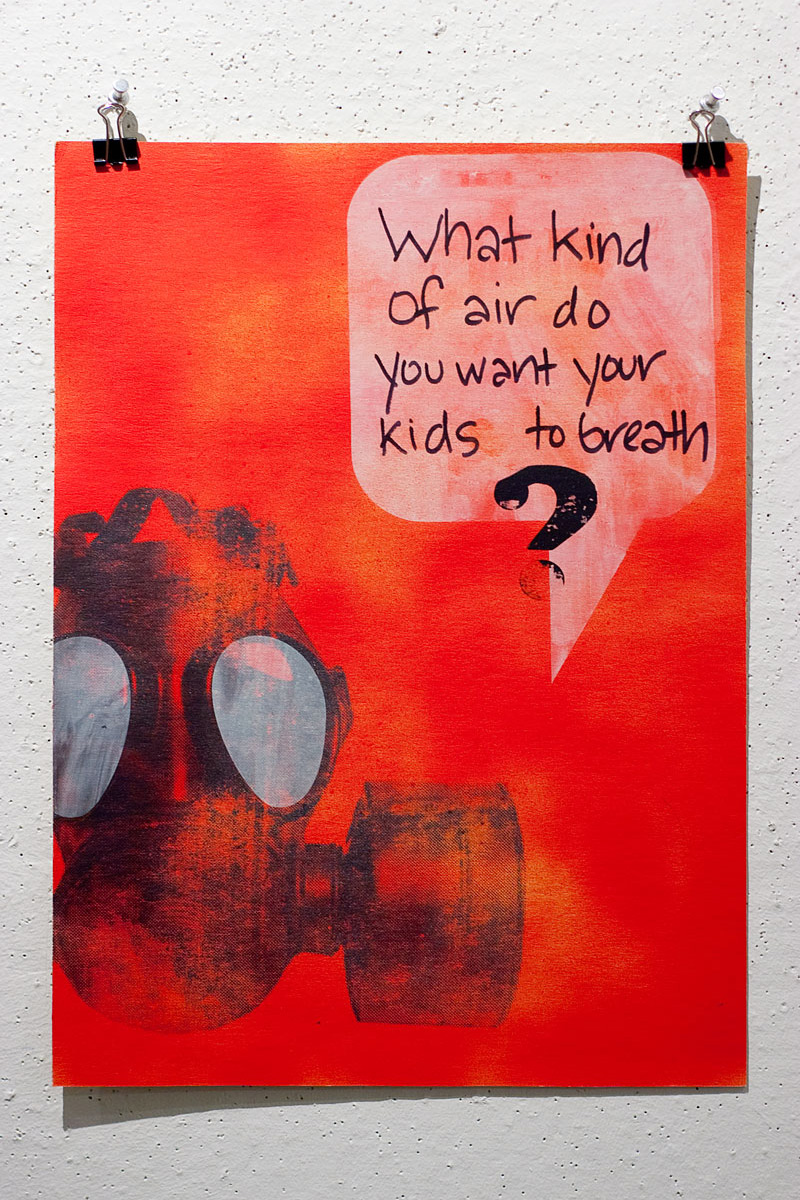
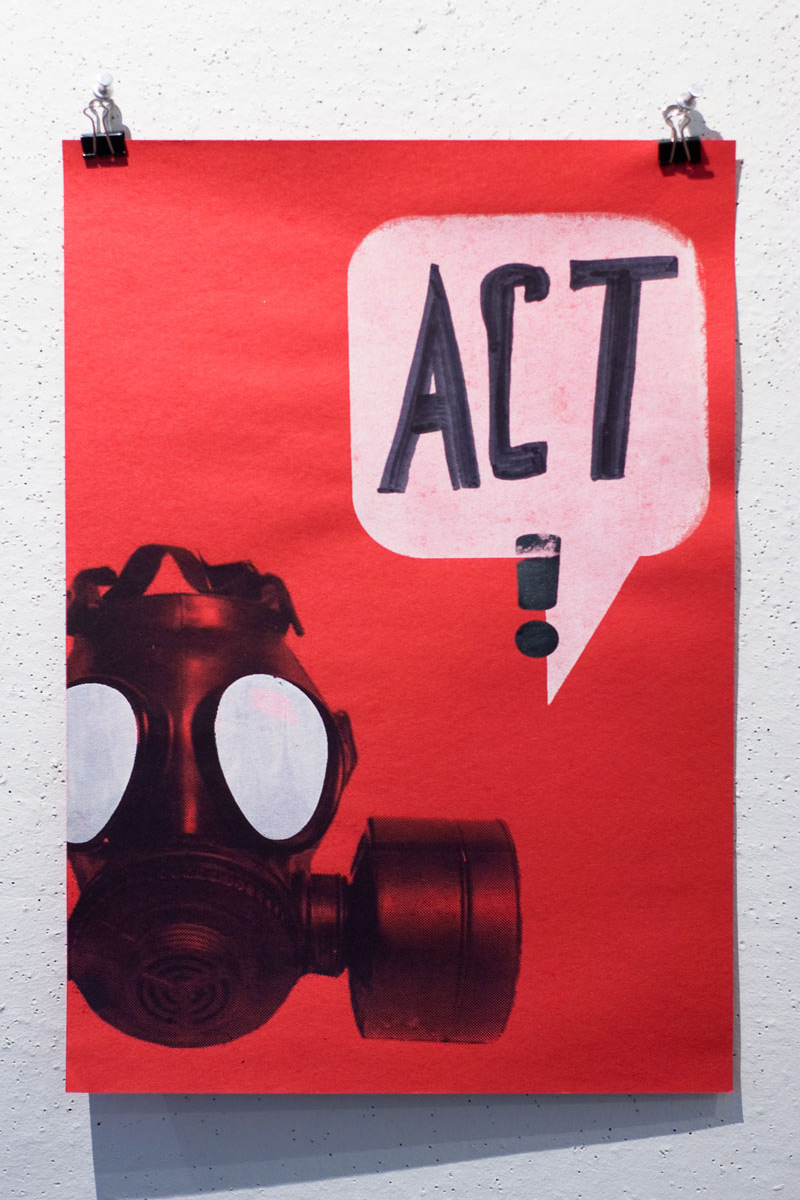
Participatory poster, hung in the elevators and elsewhere at school. They left space on the poster, along with markers, encouraging people to fill in their on ideas.
Visual language
My goal for this campaign was not to foster outright negativity which would not be productive. The aesthetic and visual imagery was partially inspired by WWII propaganda posters. I wanted to create an overall positive feeling across the material, however I felt that the gas mask theme and ominous tag line would just add a small, “what if?” thought in the minds of the viewer. “What if I don’t de my part? Will I regret it?” The aesthetic style of the logo with its playful typography also helps take the negative edge off the slogan and communicates it as subversive humor. The logo and tagline is a common thread that ties the individual pieces together into a cohesive campaign.
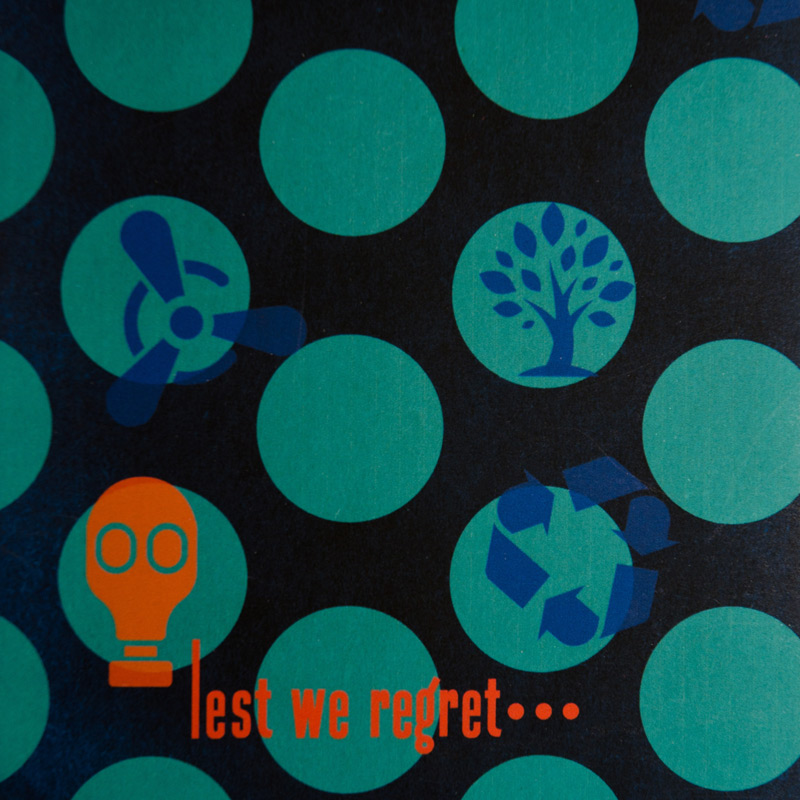
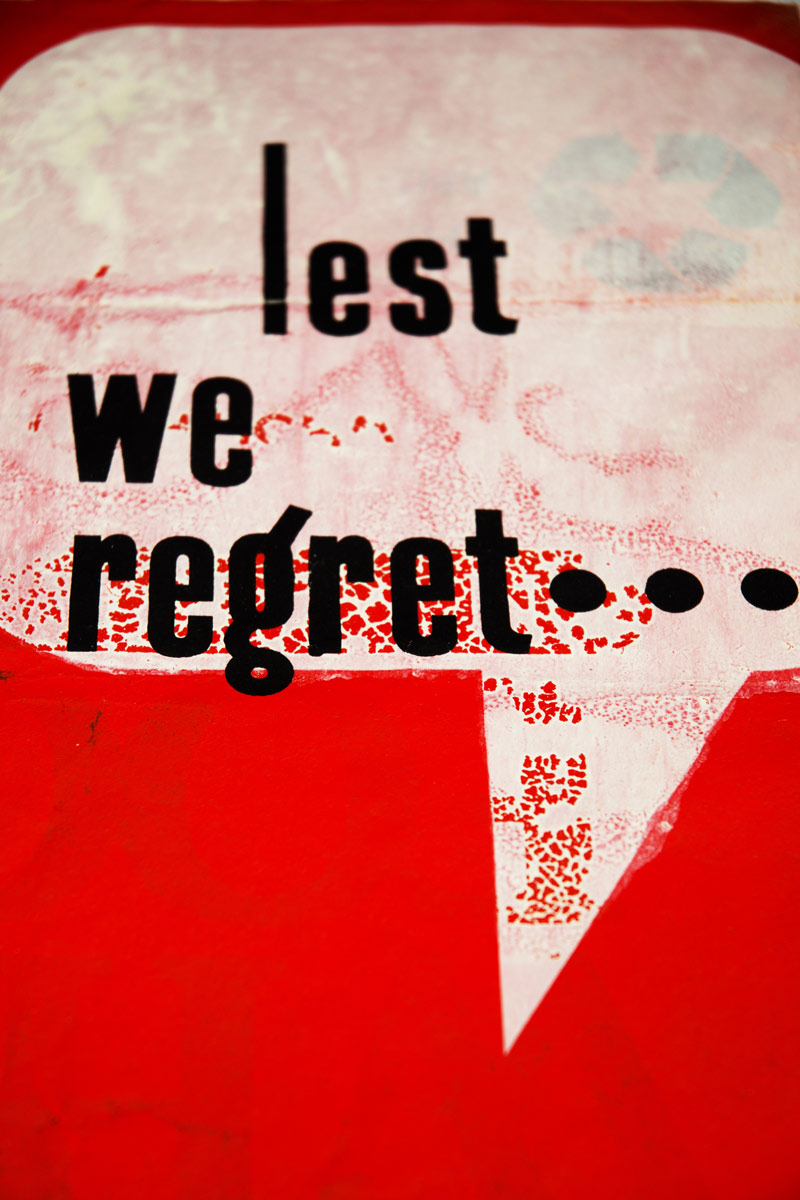
Process



